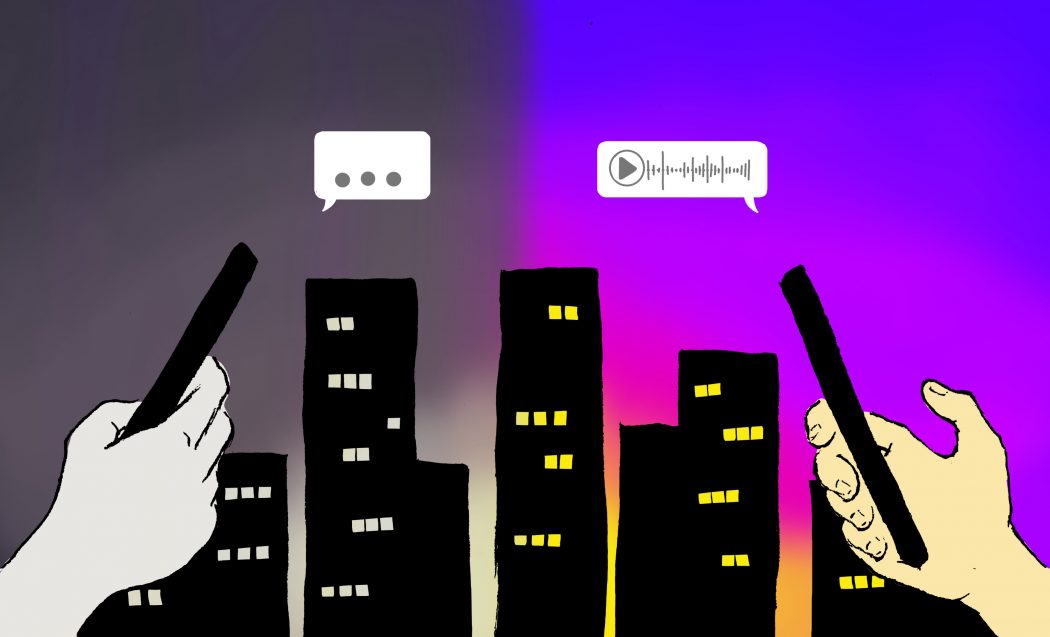Opinion: The benefits of voice messaging while texting
While it isn’t typically the norm in the United States, voice messaging is very popular in many parts of Europe. Instead of texting each other, people will often press the microphone button included in many messaging apps and record themselves. While I was studying abroad, I was taken aback the first time I received a voice message. In nervous anticipation, I opened a two-minute-long recording, only to be pleasantly surprised to hear the sender simply telling me how her day was. I quickly came to love voice messaging because of the numerous benefits associated with it.
My good friend and fellow Statesman writer Samuel Paepke said voice messaging has “the benefits of a phone call with the flexibility of a text.” This is the most apt description of why voice messaging is so great: you get the benefits of electronic speech based interaction without the burden of having to commit to a long phone call.
In fact, as counterintuitive as it may sound, voice messaging can be more convenient than texting. It is much easier to talk for a minute or two than to type out multiple paragraphs. It allows the recorder to convey lots of information very quickly. And, just like a text, the recipient can decide to listen and respond at their leisure.
Recording yourself is also much more personal than texting. Listening to someone’s voice allows the recipient to sense the emotions behind someone’s words. It allows them to gauge the sender’s mood. Hearing an actual voice enables the listener to more easily detect sarcasm and other more nuanced forms of expression. It’s wonderful to be able to hear someone actually laugh in response to a joke that you make. In other words, voice messaging is great because it maintains the human element in human interaction.
According to an article by The Guardian, 75% of adults in the UK own a smartphone, but a quarter of those people never use it for calling. The author notes that many people prefer texting because “written communication allows us to participate in the conversation at the pace we choose.” As phone calls are on the decline, voice text can serve as a fitting intermediary between pure written communication and calling.
In my own life, calling has a certain level of urgency that written forms of communication do not. Unless a call is preplanned, I usually assume that calls I receive need to be tended to immediately. Whenever I received a call from an adult while growing up, I always knew something was wrong. Perhaps voice recordings can be a way for those who value the human element of phone calls to communicate in the way they please, while reserving phone calls for more urgent needs.
Voice messaging can be a little uncomfortable at first. It will likely feel like you’re doing a theater audition. You may also be afraid to listen to the sound of your own voice. Just speak normally as if you were in a conversation, and don’t listen to recordings. Through experimenting with voice messaging, you’ll hopefully be able to discover a new form of efficient communication that connects you more closely with the people you care about, in the modern information age.
Featured graphic designed by Keith Wilson. The opinions expressed in this article do not necessarily reflect his own.

